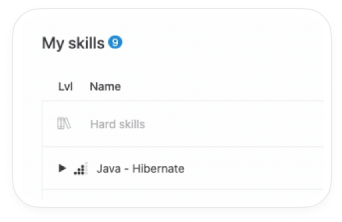The new role of the CHRO: What is impacting the role of HR leader today and what skills to improve
Today’s social, political, and economic fluctuations are forcing chief human resource officers, or CHROs, to think about how they can safely navigate their organizations, particularly their employees, through turbulence. But this disruption also allows them to examine how quickly their role must change.
Expectations about how the HR function should change are outpacing the rate at which the profession is evolving. Let’s look at what the CHRO role may look like in the future.
Things that are impacting the CHRO role
Recently, the CHRO and the finance department have become true partners of the CEO. Just as the CFO helps the CEO manage the business by raising and allocating financial resources, the CHRO should help the CEO by building and allocating talent, especially key people, and working to unleash the organization’s energy. Let’s consider what exactly will affect changes in a CHRO’s responsibilities in the future and what a CHRO of the future will do.
Come from a non-HR domain. Traditionally, a CHRO’s responsibilities have focused on HR practices such as hiring, onboarding, and firing. However, today’s CHROs are well-rounded data-driven leaders with keen business acumen. Their function is essential because of the critical role of a company’s talent strategy in business performance. Therefore, modern CHROs have different origins than they were five years ago. Business acumen and strategic vision are valuable skills that can be acquired through many career paths. That’s why seeing a chief commercial, financial, or operational leader become CHRO is increasingly common.
Aim for the future of work. Changes like the elimination of fixed jobs, the merging of personal and professional life, and the virtualization of the working world will place enormous demands on HR processes and their suitability for talent management, leadership, and cultural development. However, any change is often a powerful catalyst for positioning the most capable CHROs at the forefront of defining how the workforce should evolve to meet each new upheaval.
Manage the business jointly. All roles in the organization are essential. Therefore, employees are investors in your company. Their talents, knowledge, and skills provide opportunities for business development. HR creates value, and value affects the bottom line. Many CEOs are already reviewing the skill sets they expect from their top executives in the years ahead. Business acumen combined with technological understanding counts. To be an excellent CHRO, you should deeply understand business and digital transformation and be familiar with the legal and regulatory framework.
Work with data. The CHRO’s role will include leveraging data and analytics and developing a comprehensive understanding of people analytics tools and digital strategies. These tools will lead to employee recruitment, retention, motivation, and engagement benefits. Of course, the CHRO role doesn’t need to be filled by a techie, but the CHRO should understand how HR fits into the digital world. HR leaders should view digitization, artificial intelligence, and machine learning not as threats but as opportunities to focus on innovative strategies and make better, more proactive decisions.
Think like a CEO. While some HR leaders have in the past not prioritized connecting with colleagues, now more than ever, HR leaders need to be forward-thinking to anticipate the direction of work considering the rapid adoption of digital technologies, artificial intelligence, and analytics. After all, managers thrive on establishing connections with other companies’ managers and are not afraid to compare themselves with colleagues, acting as ambassadors for their organizations.
Develop a learning mindset. The HR director should create a forward-looking work environment. This means researching social trends in different cultures, business relationships, and attending events. Many CEOs expect their functional leaders to learn from multiple sources at all levels of the organization. CHROs should embody openness, curiosity, and inclusiveness if they want to lead their HR department through the next phase of digital transformation.
Find new ways to retain talents. A key aspect of talent retention is assessment, particularly for developing and identifying where talent can be effectively redeployed. Rejection of the narrow career of workforce development and enthusiasm for acquiring professional experience outside the position is welcome. It’s closely related to the growing idea of bringing people into the CHRO role who have had exposure to other functions and can show business understanding alongside technical expertise and broad functional knowledge. We also see more value placed on those with international experience and experience working with clients.
“By 2025, the CHRO will be something of an organization architect.” — Phil Read at Tetra Pak
Work with new generations. Demographic changes have a significant impact on corporate culture. New generations are entering the workforce with different work expectations than their parents and grandparents. And the ability to navigate these expectations is relevant because the expectation gap is growing. Business leaders should work on mutual recognition, practical cooperation, and a common goal. Organizations will need to work harder than ever to position themselves as employers of choice. CHROs of the future will need to understand how work practices are changing to reflect the expectations of Millennials and their Gen Z successors, who have already begun to enter the working arena.
According to the Harvard Business Review, these changes will lead to essential changes in the career paths of HR leaders and other leaders throughout the company — and a business benefits from better management not only of its financial resources but also of its human resources.
Get a comprehensive CHRO job profile
See the ideal profile of today’s CHRO. Get insights into a prospective CHRO’s job profile, created from an extensive internal database and analysis of innovative job descriptions, the latest market trends, and technologies.
9 key characteristics of the future CHRO
Good CHROs have strong self-awareness and confidence that helps them recognize when things are going wrong and when they need to adjust their hard and soft skills. Check out nine competencies that will strengthen the CHRO role in your company.
Emotional intelligence
People with a higher emotional quotient at work have been found to manage themselves and their relationships better and experience greater satisfaction through increased productivity in the workplace.
Understanding others and managing emotions during interactions can help employees form better bonds, allowing them to work smoothly in situations that arise at work. Emotional intelligence improves conflict resolution and decision-making skills, enhances consideration of different perspectives, and ensures that team members feel heard, understood, and valued.
Communication and negotiation
CHROs should show that they possess communication and negotiation skills to convey clarity, confidence, and influence at all levels of their relationship with the workforce. This means talking and being a moderator but not losing sight of the need to implement strategic decisions. Articulating a company’s mission and strategy is critical when the waves of change initiatives can seem endless at all levels of the organization.
Succession planning
Corporate succession planning identifies and internally develops talent to replace key leadership positions within the company. It includes all the steps required to determine which roles are essential in the company and which potential candidates can succeed in those roles. However, it goes beyond simple selection, as part of succession planning involves preparing your successors for the handover and ensuring they have the training, skills, and experience to fill the role.
Exceptional networking ability
A CHRO should explore how and where the world takes over the function. This wide-angle worldview also characterizes many successful business leaders who have an outward-looking spirit of inquiry and engagement. A well-established CHRO network means many connections within and outside the organization. CHROs know they are critical players in understanding the current and future disruptors changing the business.
Strategic thinking
The CHRO should be a ready partner in strategy development and information delivery within and outside the organization. Just as businesses have radically changed their form, so has the workplace. The head of HR needs to be a trusted advisor to the CEO on what this means for the business.
Driver of innovation and digital awareness
Besides identifying what disruptions will affect the future of work and where, the CHRO should show that they understand the implications and possess exceptional change management skills in order to identify and implement the innovations necessary to survive these disruptions. Trust in technology and data can free up the HR function, not burden it. The CHRO should have a willingness to define and delegate an innovative technology strategy, and to do so assertively.
International experience
Company boards increasingly value international experience in a CHRO. It shows openness and an international mindset that allows for a diverse workforce’s cultural nuances to flourish rather than flattening employees into a mold to fit the broader organizational culture. Someone who has lived and worked abroad is also likely to have a heightened level of adaptability, a spirit of curiosity, and a constant thirst for knowledge and experience.
Talent tracking
Talent requirements are becoming more and more specific and relevant. A good CHRO implements ways to track high-performing people across multiple business-critical streams, such as by rotating them across functions. They also aren’t afraid to achieve effective talent tracking by partnering with external talent exchange organizations, recognizing that such opportunities are significant retention levers. It’s this openness and collaboration that are the hallmarks of a confident, learning-oriented CHRO.
Risk management
The CHRO’s role is vital to risk management in two ways. The first is that people are a source of risk: a shortage of employees, sloppy work, refusal to take on additional responsibility, or a key employee leaving two months after completing a one-year training program are all people-related risks. Second, people are essential in handling risk, e.g., using their ingenuity to solve unexpected problems and going the extra mile for the organization’s good. Including HR leaders in risk management reflects that the workforce helps accomplish business development, financial, and marketing decisions. People can assist or impede the accomplishment of whatever managers have planned.
Summing up
The CHRO role will rely on data, analytics, and other practices in the business and will be even more directly focused on achieving business results in the future. CHROs will come from (and transition to) other roles. For example, in some fast-growing organizations, many HR leaders are former marketing leaders, focusing their commercial and strategic mindset on people.
Businesses are changing with speed and intensity, and head offices of the future will be ready to adapt.
Based on an extensive internal database and in-depth analysis of job descriptions, the latest market trends, and current technologies in various industries and regions, HRForecast can conduct market analysis and identify future-oriented job profiles.
Thanks to the knowledge of these future roles, organizations can better understand the specialists they need (and with which skills) to prepare for future challenges and achievements. Business leaders can do this by answering questions such as:
- How will the CHRO role evolve in the short, medium, and long term?
- What are the specific responsibilities and hard and soft skills needed in a CHRO of the future?
This feature in HRForecast that allows you to do various labor market operations is called Market Intelligence. It aggregates vast amounts of data from around the world to deliver information about labor markets, jobs, and skills that applies directly to your business landscape. For example, job postings are a tremendous predictive indicator, so by seeing where companies are investing today, you can determine their future readiness for future skills and jobs.
Stay up to date with our newsletter
Every month, we’ll send you a curated newsletter with our updates and the latest industry news.



























 info@hrforecast.de
info@hrforecast.de
 +49 89 215384810
+49 89 215384810






